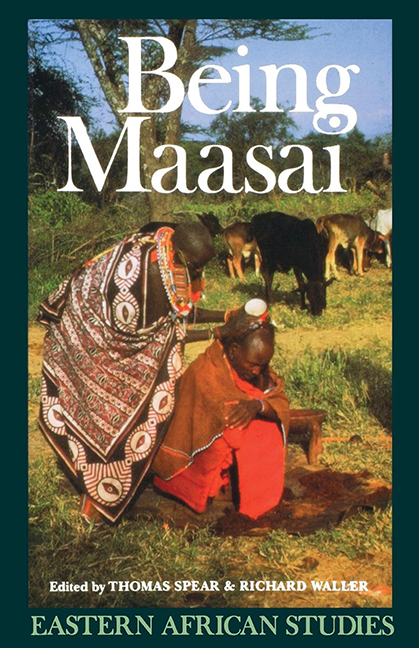III - Being Maasai: Introduction
Published online by Cambridge University Press: 30 August 2017
Summary
We shift focus now from ‘becoming’ to ‘being’, from the broad outlines of Maasai history to some of the detailed processes through which Maasai and others have affirmed and negotiated their identities. Our focus continues to be on instrumentality — how and why ethnic ideology is evoked, especially in situations regarding others; for ethnicity, by its very nature, presupposes an other in defining not only who one is, but also who one is not. That said, however, it is precisely the apparent ‘primordiality’ and Naturalness’ of ethnicity that provides its evocative power, establishing apparent fixed ground rules and also the limits of the moral community. But norms are rarely unambiguous or noncontentious. Once established, they provide a new language of struggle as people seek to articulate, uphold, and dispute moral values. Ambiguity, in turn, leads to negotiation as people seek to establish exclusive moral boundaries (i.e. ethnicities) which then become the subject of further disputation by parties contending over their definition. ‘Becoming’, it seems, never ends, for, just as people seem to come to be, struggle commences anew to determine and control their new bases of social reality.
Spencer's and Telelia's chapters put forth normative views as seen by Maasai, even as they acknowledge that individual everyday reality could, in fact, be very different. The anomalous presence of married murran and their wives in the manyata is a dramatic case in point. Spencer focuses on one such normative value, time, to show how Maasai socially construct themselves in the highly elaborated structures and attendant values of their age-sets. Formally progressing through life corporately with one's peers in an age-set, Maasai men move both chronologically and morally from self-abnegating warriorhood to serious, self-interested patriarchy, internalizing the values of Maasai society in the process. His analysis reveals the degree to which Maasai self-identity is embedded in their most fundamental values, and demonstrates why one of the most open and frequent means of non-Maasai to enter Maasai society is through participation in the age-set process by which even Maasai themselves must become Maasai.
- Type
- Chapter
- Information
- Being MaasaiEthnicity and Identity in East Africa, pp. 137 - 139Publisher: Boydell & BrewerPrint publication year: 1993



